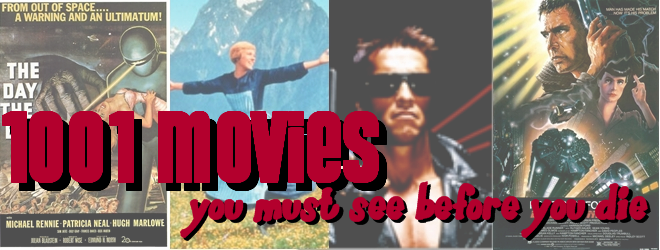
Greetings from your 1930s film reviewer, Jonathan Shaw! I'll be covering the '30s films from the "1001 Movies You Must See" list. There are 87 of them, so this should keep me busy for a while. As we find ourselves in the first depression since the 30s (no one's calling it a depression now, but you can guarantee they'll use the term eventually), I thought it'd be interesting to explore the films from the last depression.
So, Footlight Parade (1933) takes a little getting used to. James Cagney's explosive, high-velocity speaking cadence is often impossible to follow. After I switched the subtitles on, though, I was generally able to keep up. Even still, there are jokes that were inexplicable. And there are expressions that a web search yields nary an insight into ("oh nerts!" for example.)
Sprinkled throughout the film are references to changes afoot in the entertainment industry at the time. The
Hays Code -- a set of film censorship guidelines -- was in effect, but wasn't fully enforced until 1934. Footlight Parade pokes fun at all this via a character who's a bumbling on-set censorship "cop," appointed by nepotism, announcing himself with a comical double-clap, and easily seduced by the scheming Vivian Rich ("I was just showing Miss Rich what you can't do in Kalamazoo," he explains weakly when the two of them are caught in an amorous embrace.)
After a half hour or so, I found myself pulled into the plot. James Cagney's character, Chester Kent, is a partner in a broadway production firm who's trying to cope with the shift to talking pictures. His idea: musical on-stage prologues that show before films. You can't help but feel sympathetic for him after you learn that his other two partners are siphoning off all the firm's profits (through some "creative accounting") while he's working himself ragged to produce truly crowd-pleasing fare.
One of these ideas is a "prosperity unit" -- which, again, a web search taught me nothing on -- but what I inferred was a sort of "be optimistic and remember the good old days of the booming 20s" song-and-dance routine. Cagney espies a group of girls rehearsing for a prosperity unit and he intervenes: "this is a prosperity unit! Show some life and some pep! *Dance* on your feet, don't die on them!" He then takes the opportunity to show them how it's done (the dude has some serious energy..)

But, casting a glance at their fretful dance instructor, one of the dancers counters "how can we look 'prosperity' when he's got depression all over that can of his?" And they decide to switch gears -- to the absurdly comical (cat-themed performances) and an absolutely over-the-top waterworld fantasy (right) with suggestive nymphs frolicking, smiling, and swimming in a variety of undulating geometric formations.
You get a sense, then, of what Americans in 1933 -- contending with a staggeringly high unemployment rate of 25% -- wanted to see in their films. They didn't want preachy "prosperity units" (whatever those were), and they didn't want imbecilic censorship rules (but those started getting enforced anyway, in 1934).
What they got in this film, instead, was an extravagant escape fantasy, brimming over with courageous defiance (Cagney stands up to his corrupt partners), sexual innuendo, and savvy commentary on the times. I finished up the film feeling hopeful and happy. No wonder people ate it up in 1933.
 Here's your pitch: restless dad sees UFO, chases UFO, boards UFO. Sounds like a blockbuster, doesn't it?
Here's your pitch: restless dad sees UFO, chases UFO, boards UFO. Sounds like a blockbuster, doesn't it?




.jpg)


